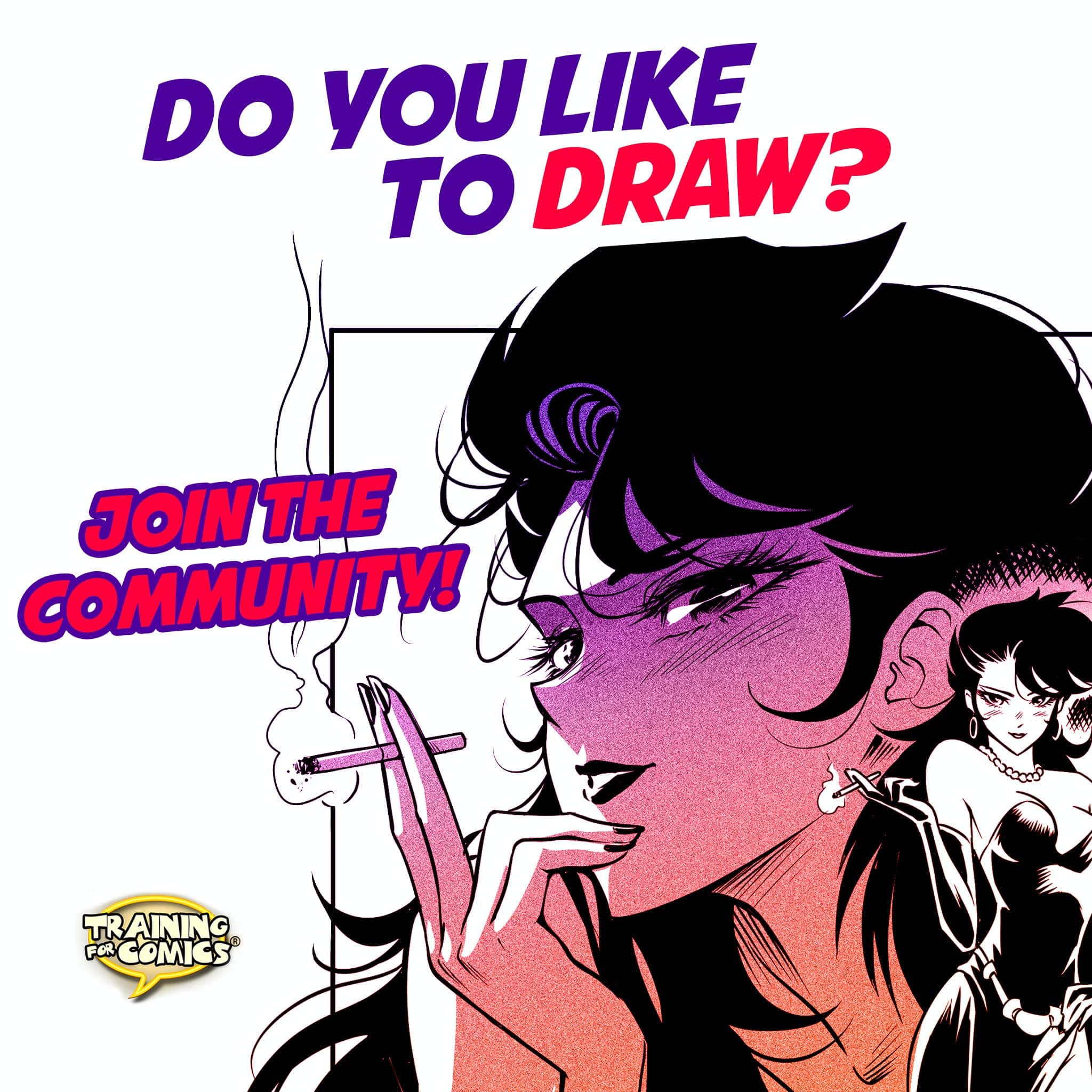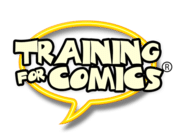The Three Mistakes You Make When Sharing Your Ideas with Friends (And No One Tells You)
Have you ever felt that tingling in your stomach when thinking about sharing your latest idea for a comic or illustration with your friends? That moment of creative vulnerability can be both exciting and terrifying. But what if I told you that you might be unconsciously sabotaging your own ideas even before sharing them? In this article, we’ll unravel the three most common mistakes artists make when presenting their creations to friends and colleagues. Get ready to discover how small habits can make the difference between success and creative stagnation.
Imagine for a moment that you have the next big hit in the comic world in your hands. That fascinating story you’ve been cultivating in your mind for months, or perhaps years. Maybe you already have notebooks full of sketches and dialogues, or maybe it’s just the seed of a brilliant idea. Whatever your case, you know you have something special on your hands. But having a great idea is only the first step in the creative journey.
The second crucial component is having a group of people willing to listen and offer their honest opinion about your work. Friends, colleagues, or even other artists you admire can be that initial audience you need to polish your creation. And this is where the third and perhaps most important element comes into play: the courage to expose your work to the scrutiny of others.
You’ve gathered the courage, you’ve toughened your skin, and you’re ready to receive constructive criticism. You’ve promised yourself not to get discouraged by negative comments or carried away by praise. You think you’re prepared for everything, but there are three subtle habits that could be sabotaging your efforts without you realizing it. These seemingly harmless mistakes can be the difference between your career taking off and creative stagnation. Ready to take your art to the next level? Discover how here.
Join us as we break down these three critical mistakes and show you how to avoid them to maximize the impact of your creative ideas.

1. The Mistake of Being the First Critic: When Your Opinion Gets Ahead of Others
Imagine this scene: you’re about to hand over your latest creation to a friend to read. Your heart is pounding, your hands are slightly sweaty as you hold the pages. And just before passing them over, the words come out of your mouth: “I hope you like it, although I’m not too sure about the ending…” Stop right there! You’ve just made the first big mistake.
Never, and let me emphasize, NEVER share your work preceded by your own criticism. It’s tempting to want to prepare your reader, soften the blow of possible criticism, or even direct their attention to the parts you consider most accomplished. But by doing so, you’re influencing their perception before they’ve even laid eyes on your work.
Phrases like “I wrote it in a night of inspiration, so it’s probably full of errors” or “I think the best part is when the protagonist declares their love” are more harmful than you think. By expressing these opinions, you’re biasing the reading and limiting the possibility of receiving genuine and valuable feedback.
Remember, at this moment, your friend or colleague is like a test subject in an experiment. Your goal is to get a pure, unfiltered reaction to your work. Any prior comment from you contaminates the results.
I know it’s hard. As a creator, you know you’re capable of more than what that initial draft shows. We all feel that way. But this is not the time to justify or explain yourself. It’s time to listen and learn.
Your task is to deliver your work in silence and observe. Let them be the ones to ask questions, to express their impressions without the influence of your own insecurities or expectations. Want to perfect the art of receiving constructive feedback? Explore more here.
Remember, you’re not here to impress anyone with your talent as a writer or artist. That moment will come later, when your work is polished and ready for the world. Now, your goal is to gather valuable information that will help you improve. And the only way to get that pure information is to keep your mouth shut and your ears wide open.
2. The Fear Trap: When the Fear of Idea Theft Paralyzes You
Now, let’s address a fear that lurks in the heart of many creators: the fear that someone will steal your ideas. It’s an understandable feeling, but potentially devastating to your creative growth.
Think about this: have you ever heard the saying that more relationships are destroyed by jealousy than by actual infidelities? The creative world works similarly. The fear of having an idea stolen can be much more harmful than the unlikely event of someone actually doing it.
Ideas, in their most basic form, are abundant. What makes them unique and valuable is the execution, your personal touch, the way you develop them and bring them to life. If someone “steals” an idea from you in its crudest form, they still don’t have your vision, your style, your experience to shape it.
Moreover, think about this: an idea that never leaves your head is like a plant that never sees sunlight. It can survive, yes, but it will never reach its full potential. Ideas need air, light, to be questioned and challenged to grow strong and resilient.
The real danger is not that someone will steal an idea from you, but that you’ll remain stuck, unable to receive valuable feedback that could elevate your work to new levels. Ready to take the leap and share your ideas with confidence? Discover how here.
Instead of fearing idea theft, cultivate the ability to generate more and better ideas. Share them, let them grow through interaction with others. Remember, great works rarely arise from a single brilliant idea, but from the combination and evolution of multiple concepts over time.
If you’re really afraid that someone will appropriate your idea, consider these strategies:
- Document your creative process: Keep an idea journal or blog where you record the development of your concepts.
- Share selectively: You don’t need to reveal all the details. You can share enough to get feedback without exposing every aspect of your idea.
- Focus on execution: Remember that the idea is just the beginning. Your ability to carry it out is what really matters.
- Build a network of trust: Surround yourself with people who respect intellectual property and value creative ethics.
By overcoming this fear, you’ll open yourself up to a world of creative and collaborative possibilities that can take your art to heights you never imagined.

3. The Silence That Speaks Volumes: The Importance of Asking Follow-up Questions
You’ve shared your work, you’ve received comments, and now… what? If you think your job ends here, you’re making the third crucial mistake. The feedback phase is not a monologue, it’s a dialogue, and your role in this conversation is as important as that of the person offering their opinion.
Asking follow-up questions is an art in itself, and mastering this skill can be the difference between receiving superficial feedback and obtaining deep insights that truly propel your work to the next level. Want to learn how to ask the right questions? Click here to discover more.
When someone gives you their opinion about your work, it’s the perfect time to dig deeper. If they tell you they liked a particular scene, ask why. What specific elements attracted them? How did it make them feel? If you notice they didn’t mention a part that was crucial to you, don’t be afraid to point it out: “I’m surprised you didn’t mention the scene with the chess player and the Tsar. What did you think of that part?”
This process of inquiry will allow you to:
- Better understand your audience’s perspective
- Identify areas of your work that might not be communicating what you intended
- Discover aspects of your creation that resonate more than you expected
- Get ideas to improve and refine your work
Additionally, asking follow-up questions helps you develop a crucial skill for any creative: the ability to receive and process constructive criticism. By actively engaging in the feedback process, you demonstrate that you value others’ opinions and are committed to your artistic growth.
Remember the wise words of Sid Jackson, the renowned board game designer: “I always show my new ideas to family and friends. I don’t care if they lie to make me feel better; in general, I can tell.” This insight only develops through constant practice of sharing and discussing your work.
Don’t be afraid to ask specific questions about elements of your work that concern you or that you have doubts about. Sometimes, people may be reluctant to criticize directly, but if you give them the opportunity to comment on specific aspects, you’ll get more useful and actionable information.
It’s also important to remember that feedback won’t always be positive, and that’s okay. Learn to see criticism as opportunities for improvement, not as personal attacks. Each comment, positive or negative, is a valuable piece of information that can help you refine your vision and improve your technique.

Conclusion: The Art of Sharing and Growing
Throughout this article, we’ve explored the three critical mistakes that many artists and writers make when sharing their ideas: getting ahead with self-criticism, fearing idea theft, and not delving deeper into the feedback received. Each of these mistakes may seem harmless at first glance, but they have the potential to seriously hinder your creative growth and the development of your projects.
Remember, the act of sharing your work is not just about getting approval or validation. It’s a vital process for the development of your art, your vision, and your creative voice. Every time you share an idea, a sketch, or a draft, you’re taking a brave step towards improvement and growth.
By avoiding being the first critic of your work, you allow others to experience it without filters or pre-established expectations. Overcoming the fear of idea theft opens you up to a world of collaborative possibilities and growth. And by learning to ask follow-up questions and delve deeper into the feedback received, you transform each interaction into an invaluable learning opportunity.
The key is to understand that the creative process is not a solitary path. Although the initial spark of an idea may arise in the solitude of your mind, it’s through interaction with others, the exchange of ideas and perspectives, that this spark can become a bright and lasting flame.
So the next time you find yourself hesitating to share your latest project, remember these tips. Deliver your work without preamble, open your mind to the possibilities that arise from collaboration, and don’t be afraid to dig deeper into the opinions you receive. Are you ready to take your creativity to the next level? Explore our resources here.
Your creative voice is unique and valuable. It deserves to be heard, refined, and celebrated. Don’t let these common mistakes prevent you from sharing your art with the world. Every time you overcome these obstacles, you not only improve your work, but you also strengthen yourself as an artist and as a person.
Remember, true growth occurs outside your comfort zone. So dare to share, to listen, and to evolve. Your next great idea is waiting to be discovered and developed. Are you ready to take the leap?



